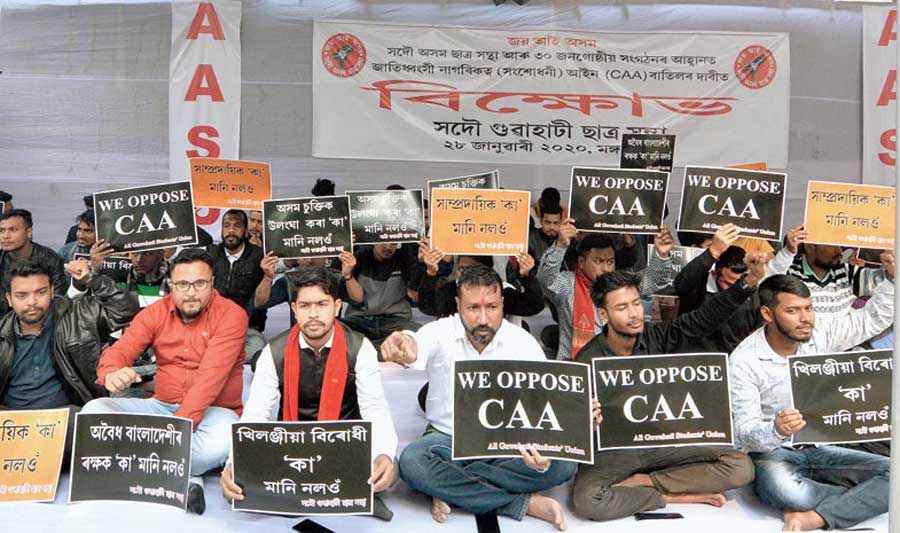Noted political activist Yogendra Yadav on Monday hailed the “significant role” of Assam during the anti-CAA movement in 2019 and said the state will have to take the lead role if the democratic movement against the contentious law were to be revived.
Yadav, attending the third death anniversary of the state’s five anti-CAA agitation martyrs organised by the Coordination Committee Against Citizenship Amendment Act (CCACAA), said the “danger” from the CAA was not yet over.
“The CAA is still a law in the country... The government could not muster the courage to implement the law by framing the rules because of opposition from the janta (people). It is my understanding that the government will try to implement the law in the next year because there will be elections in 2024 and as part of the preparation there will be attempts to create Hindu-Muslim tension... that is why there will be attempts to implement the CAA,” he said.
The Swaraj India chief added: “That is why those who believe in the Constitution should be ready for another peaceful and democratic struggle against the law. And if there is a second struggle, Assam will have to take the lead role as in the past.”
The contentious CAA fasttracks Indian citizenship to persecuted non-Muslims from Bangladesh, Pakistan and Afghanistan who entered India without papers before December 31, 2014.
Parliament passed the law on December 11, 2019. Yadav said what happened in Assam was not an agitation but a Jan Vidroh (uprising) against the law and he was sure the “uprising” will happen again if the law is implemented.
There was a widespread protest against the citizenship bill and after it was passed, it led to the death of five persons on December 12, 2019.
The five anti-CAA martyrs included Dipanjal Das, Sam Stafford, Ishwar Nayak, Abdul Alim and Dwijendra Panging. Around 18 people were also injured.
The family members of Stafford and Nayak attended Monday’s anniversary function where the CCACAA’s Deben Tamuly said they would continue to strive for justice for the martyrs.
Hailing Assam’s role, Yadav said the anti-CAA movement elsewhere in the country was projected as a Muslim movement but in Assam, it was an agitation for equality as enshrined in the Constitution.
The opposition to the CAA in Assam or the whole of Northeast is not linked to religion but is fuelled by the fear that the law will open the floodgates for illegal migrants, thereby threatening the identity and future of the indigenous communities.
In other parts of the country, CAA is widely seen as being discriminatory against Muslims as it made religion the main criterion for acquiring citizenship.
The protest against the proposed law “first” started in Assam in 2015 when other parts of India had no idea or little idea about the “ramifications” of the Citizenship Amendment Bill (CAB), a participant at the anniversary function said.










